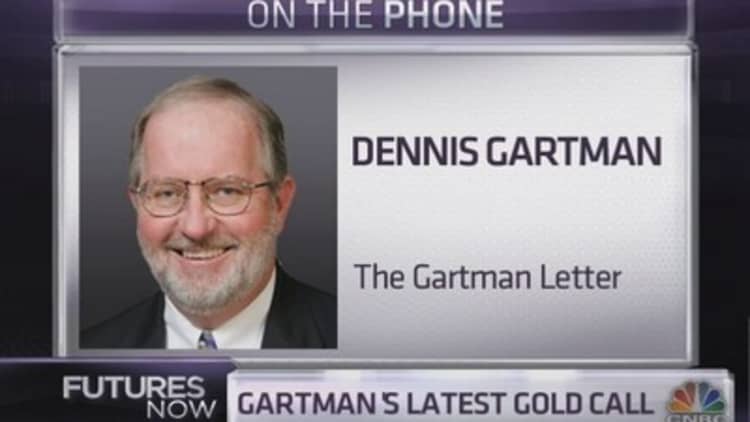Corn and wheat futures dropped to 12-week lows on Wednesday, retreating sharply from early May highs as supply worries have faded in the face of improving weather and a stronger-than-expected planting season.
"People thought we were going to have a major planting problem," said Randy Mittelstaedt, director of research at R.J. O'Brien. "But the cool and wet conditions have turned warmer and wet, which means that the corn crop is going in with very good conditions, and that has turned the whole thing around."
After touching 10-month highs, then, corn futures have fallen below $4.70 per bushel.
"Some of the bulls had hoped the crop would be late, that it would be put into duress—that's just not going to happen," said Dennis Gartman of the Gartman Letter on Tuesday's "Futures Now." "You could be looking at corn with a three-handle without too much difficulty."
Read More US grain belt land values ease in first quarter
When it comes to wheat, the situation is a bit different.
"The rally on wheat crop concerns was completely justified, because of the severe damage to the hard red winter wheat crop," wrote Chip Flory, editor and publisher of Pro Farmer Newsletter, in an email to CNBC. "The problem is, the rest of the world grows wheat, too! And competing exporters generally have a good supply and a price that is cheaper than U.S. wheat, so the slump in U.S. prices is tied to a lack of demand."

At this point, the selling may beget future selling.
For farmers and bullish traders alike, "with weather moderating and the U.S. getting through some of our supply worries, the psychology is, take the money and run," said Rich Ilczyszyn, senior commodities broker at iiTrader.
However, the decline in prices probably won't mean much for consumers. Meat prices have skyrocketed due to a lethal hog virus and shrinking cattle herds. But even though cheaper corn prices will decrease feeding costs, it will likely take a long time for cattle herds to rise again, Mittelstaedt said.
Read More Cashing in on the booming wheat-free market
And what about your morning bowl of cereal?
"Grain prices have very little to do with the price of corn flakes in the grocery story," Flory wrote. But on the upside, "the current price shouldn't do anything to drive prices higher, as grain prices are in an overall slide from the 2012 to 2013 price highs."
—By CNBC's Alex Rosenberg.
Watch "Futures Now" Tuesdays and Thursdays at 1 p.m. ET exclusively on FuturesNow.CNBC.com!




